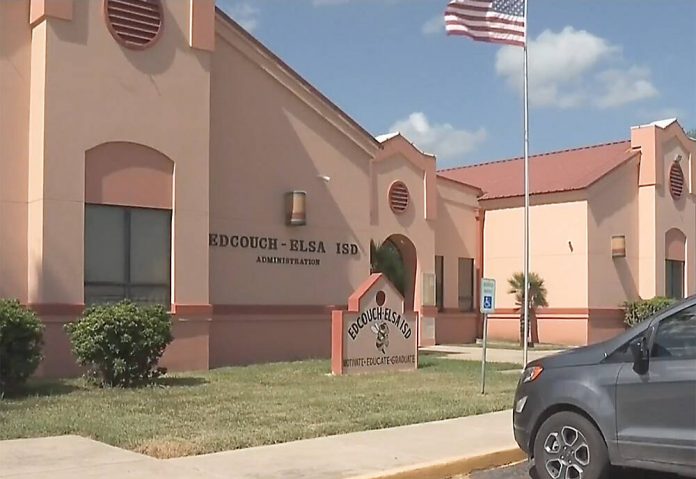|
Only have a minute? Listen instead
Getting your Trinity Audio player ready...
|
Edcouch-Elsa ISD will be arming district security personnel through the “Guardian” program in response to House Bill 3, which requires an armed guard at every Texas school campus.
The district’s school board is expected to vote on a resolution adopting the program later this month due to lack of personnel or funding, district Safety and Security Director Raul Gonzalez told trustees at a meeting last month.
Training was expected to be conducted from July through mid-August, he said, noting that the program also requires a psychological evaluation. Background checks were already underway in July.
Gonzalez said the district will select the type of weapon and ammunition employees carry, which employees will buy and be reimbursed for.
Gonzalez described the firearms largely as a swift, lethal response to a potential school shooting situation.
“So when somebody pulls a gun on our kids, on our defenseless kids, we are expecting for the Guardians, we are expecting for somebody who has a gun, to engage the suspect,” he said. “There may not be time to say ‘Hands up, put your gun down.’ Because action is faster than reaction. So some of the training that we’re gonna be doing with our guardians is gonna be simulation training.”
Many districts across the state — particularly smaller and rural districts — have turned toward the Guardian program or school marshals as a solution to new safety requirements and concerns that followed the Robb Elementary School shooting in Uvalde last year.
Interim Superintendent Alda Benavides told The Monitor on Tuesday that Edcouch-Elsa will be the first district in the Rio Grande Valley to adopt the program.
She said the district needs at least eight armed individuals to be in compliance. Participation is optional for the district’s 16 or so guards, and she said the district may use some in-house armed guards and some outside personnel to meet that number.
Edcouch-Elsa ISD, in contrast to some larger Valley school districts, has no standalone district police force.
Benavides says it can be difficult for rural districts to meet state security mandates.
“Number one, limited resources when it comes to funding,” she said. “There’s funds available through grants, but all that will take time, once we are aware of the funding that’s available. We understand that there’s gonna be quite a bit of funding, but we don’t know when and when we’re gonna be able to apply for that.”
The Guardian program could pave the way for arming non-security guard employees. Benavides said the district is not currently considering that measure.
“We’ve had some interest, but to start off we’re not going to include them at this time. We just want to get it off the ground with just limiting it to our security officers,” she said.





